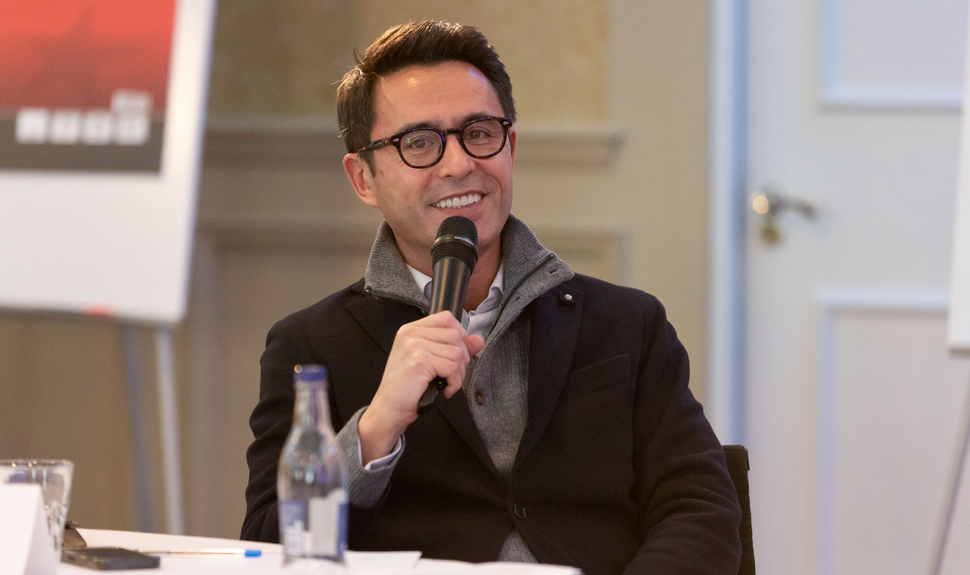Any project manager needs an inspiring voice. And Pierre Le Manh’s one is among the most impacting. The CEO and president of Project Management Institute (PMI) offers us his vision and advice for young project managers. He reminds us of essential elements that we too often tend to forget.
What in the history of project management can give young project managers confidence in the profession? If you were a young project manager, what would surprise you the most today?
As part of my CEO role, I often talk with members of our global community, as I am curious to learn what is valued by young professionals. My take-way from these discussions – whether in France or in China, in India or in the US – is that what young professionals value is not different from what project professionals of all generations value the most: belonging to a community of likeminded professionals to share their experience and their passion. That is, first and foremost, what PMI is about: an extraordinary global community.
The project management discipline has a long history – and I am confident to say, a big future ahead.
The collective experience of professionals united by PMI has led us to continuously contribute to the development of standards and practices. The project management discipline is strengthened by the PMI body of knowledge and by decades of research. Together and generation after generation, this work helps increasing the probability of success of any project.
Projects are about transformation. One of the most appealing aspects of project management is the opportunity to drive impact across a wide range of sectors. Over the past half century, we have seen countless examples of how the ability to effectively manage projects can move our society forward. Pursuing opportunities in project management allows you to contribute to that impact and even amplify that impact, once you have gained the knowledge and experience to activate all dimensions of effective project management – technical skills, power skills and business acumen.
How is the profession evolving in the face of mega trends?
As the world is becoming increasingly complex and uncertain, the profession is first and foremost focusing on simplicity and agility.
But it is not that easy to be simple and agile. For instance, to be agile, being fluent in only one way of working such as “predictive” or “adaptive” is not enough. Project professionals must develop the ability to choose the right approach, or even combine several approaches, depending on the context, the phase in the project lifecycle, the objectives, the constraints, and many other parameters.
Simplicity is also difficult to achieve. It requires experience but also a solid understanding of the world in which we live and the challenges that business leaders are facing – from the ubiquitous digital transformation imperative to the increased prevalence of remote work, from the leadership of multi-cultural teams to constantly shifting consumer behaviour. You do not respond to complexity by adding more complexity. You need to learn how to focus on a few, simple and clear ideas, so you can lead transformation.
All of this calls for a constant self-actualization and for learning from peers who are facing the same challenges. It’s very exciting too!
How is the Project Management Institute listening to and adjusting to the needs of Young Project Managers?
PMI continues to engage young project professionals to better understand their priorities – whether that’s rallying our community to share their project management skills with youth through our educational foundation PMIEF, highlighting young leaders through our Future 50 initiative, or engaging emerging leaders through our Global Executive Council formed by organizations from around the globe.
We have also established a Next Gen global volunteering insights group, to create a platform for gathering feedback and deepening our understanding of the needs and development opportunities of young professionals.
All these inputs and insights are evaluated and followed-up by our teams that focus on improving the learning and digital experience we provide through our courses. As an example, we have focused on providing more bite-sized learning and an easy digital access.
Learning needs have radically changed since the first e-Learning models emerged. Learners spend most of their time engaging in various apps on their mobile phones to consume content, play games, and communicate; they expect their learning experience to evolve accordingly. They consume information when they want it, where they want it, and the way they want it. We have responded with offerings like PMI Study Hall, which is designed to help learn via games, bite-sized content based on case studies developed by peers, and practice exams to reduce test anxiety.
If you had 3 main pieces of advice to give to a young project manager, what would they be?
- Remember that life is short – and professional life is even shorter. Very quickly, before you even realize it, you’ll be in positions of leadership. So don’t only pay attention to your mentors and bosses – also seek out the ideas and perspectives of the generations following you. Before you know it, you’ll be turning to them for a greater understanding of what’s relevant in technology and the workplace.
- Embrace lifelong learning. Four years of formal education is not enough. I think a lot of trepidation about change comes from a feeling of vulnerability or inadequacy about our skills. But if you commit yourself to continuously learning, you are better prepared to see your professional journey as an evolving journey. In truth, this should be a relief – each year should be an opportunity for new challenges, new things to learn, and new skills, rather than doing the same thing for decades. Ultimately, growth and comfort rarely come together.
- Remember that growth and comfort don’t go well together. For the most part, our life is a succession of choices we make. The tough choices are… tough, by definition. But they are also, in the end, the most rewarding.
Project management is about anticipation, so how can we lead a project in a world where uncertainty has become the norm?
Instead of trying to identify every risk upfront, try to apply agile principles: implement incremental and iterative delivery in which every new step is assessed and scoped based on the results of the previous iteration.
Because you will operate with a lot of uncertainty, your ability to lead teams – to show them a clear direction in spite of a very challenging environment – will be key to your success as a project manager. That is why, beyond the table stakes mastery of ways of working, it is equally important to develop your skills in communication, problem solving, strategic thinking, critical thinking, and other key power skills. These skills will be crucial for maintaining project outputs, staying relevant and keeping a high level of engagement and resilience of your team members – and your own!
What vision does PMI have of the role of project managers in the participating in the transitions of society?
The very definition of a successful transformation is to move from an existing state to a desired state. To achieve this, you need people who get things done. That is what project managers do. Without them, there may be grandiose visions of the world. But nothing will get done.
So, if you want to be one of these people who get things done, welcome to our global community.
Read also: How the process of Sketching Tomorrow has changed me…






